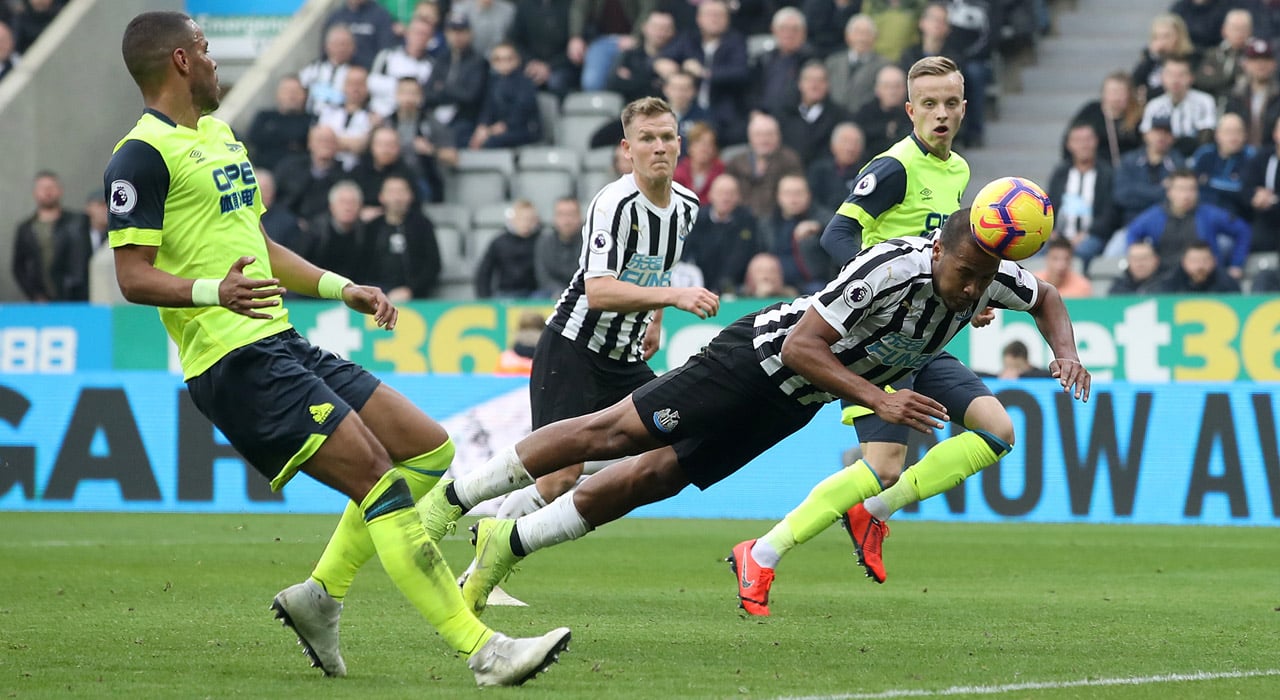
Newcastle United player heading a football
HEADING study
Former football players are taking part in major study to investigate effects of the sport on brain health.
The HEADING study will examine brain health and healthy ageing in around 300 former football players aged 50+. The researchers will assess physical and cognitive abilities of former players in relation to their previous exposure to concussion.
The researchers are from London School of Hygiene & Tropical Medicine (LSTHM), Queen Mary University of London (QMUL), and the Institute of Occupational Medicine (IOM).
Read our end of study newsletter
Recent updates
Events
Newsletter
Contact us
London School of Hygiene & Tropical Medicine
Email: HEADINGstudy@lshtm.ac.uk
The HEADING study is working with retired footballers to find out if there are associations between a history of concussion, heading the ball, and neurodegenerative disease.
The research is gathering data on the retired players’ quality of life and social circumstances, with an extensive set of tests capturing physical and cognitive capabilities - including grip strength, memory and reasoning - and a neurological clinical examination to look for signs of disease. There will also be face-to-face assessments as well as blood and urine samples taken for future analysis. The same tests and procedures will be used in a separate ongoing 1946 Birth Cohort Study which will provide a general population comparison.
The 300 former professional football players, who are over 50, will be asked about their experiences of suffering concussion, but the study will also assess if any other characteristics of football playing history such as length of career or age when they took up the game is associated with any of the health outcomes measured.
HEADING is a collaboration between the London School of Hygiene & Tropical Medicine, Queen Mary University of London, the Institute of Occupational Medicine, and University College London, with the help and support of the Professional Footballers Association (PFA).
Background
There is growing evidence on the possible increased risks of neurodegenerative diseases including Dementia, Amyotrophic Lateral Sclerosis (ALS), Parkinson’s disease (PD), and Chronic Traumatic Encephalopathy (CTE) in former contact sport athletes. Different sports expose players to different types of injuries and while several studies have suggested an increased risk of various neurological disorders, this has not yet been established.
Recent updates
Events
Newsletter
Contact us
London School of Hygiene & Tropical Medicine
Email: HEADINGstudy@lshtm.ac.uk
Neil
Pearce
Professor of Biostatistics and Epidemiology / LSHTM
Dr Valentina Gallo
Queen Mary University of London
Damien McElvenny
Institute of Occupational Medicine
Dr Simon Kemp
Rugby Football Union / Rugby Football Union
Professor John Cherrie
Institute of Occupational Medicine
Dr Sebastian Crutch
Institute of Neurology, Queen Square, UCL
Donna
Davoren
Secretary and PA
Professor John Hardy
Institute of Neurology, Queen Square, UCL
Saba Mian
LSHTM
Professor Huw Morris
University College London (UCL)
Professor Heinrik Zetterberg
University College London
Dr Mike Loosemore
Institute of Sport, Exercise and Health, UCL
Dr Andrea Malaspina
Queen Mary University of London
Professor Marcus Richards
MRC Unit for Lifelong Health and Ageing at UCL

Elizabeth
Williamson
Professor of Biostats and Health Data Science
Danielle Pearce
Research Assistant, HEADING Study
Donna
Davoren
Secretary and PA
Recent updates
Events
Newsletter
Contact us
London School of Hygiene & Tropical Medicine
Email: HEADINGstudy@lshtm.ac.uk
England manager Gareth Southgate is leading the Football Association's support to encourage ex-players to take part in important research studies - including HEADING - which focus on the potential links between neurodegenerative disorders and former professional footballers.
Ex Arsenal and England footballer Tony Adams is urging former footballers to sign up to a major study examining the link between heading the ball in football and long-term cognitive decline.
The London School of Hygiene & Tropical Medicine is to lead a study examining the possible link between a history of head impacts and neurodegenerative disease in former professional football players.
Recent updates
Events
Newsletter
Contact us
London School of Hygiene & Tropical Medicine
Email: HEADINGstudy@lshtm.ac.uk
Recent updates
Events
Newsletter
Contact us
London School of Hygiene & Tropical Medicine
Email: HEADINGstudy@lshtm.ac.uk

